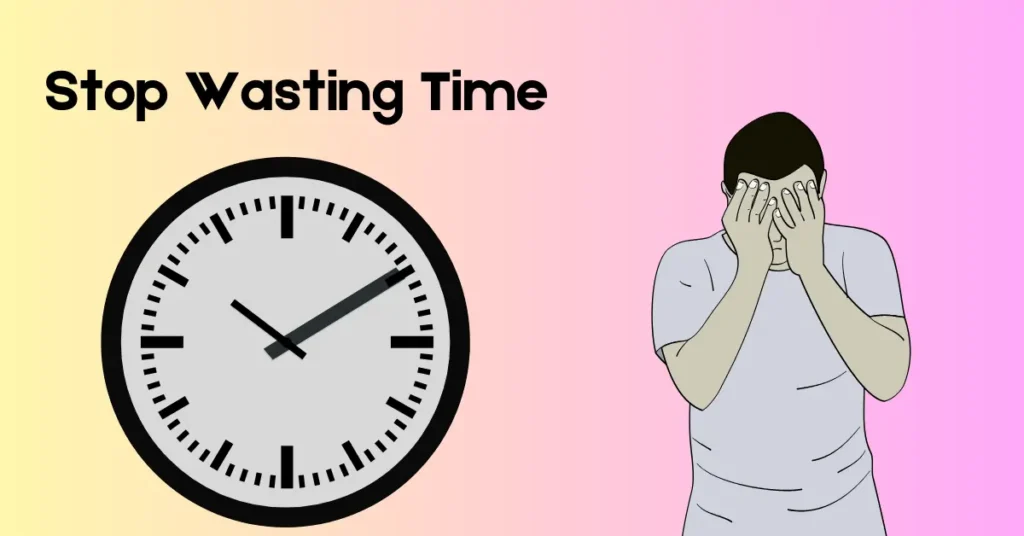Every one of us do something or the other in our life. If you are a college student, then you do your homework. If your exams are coming, then you think that this time I will pass the exam by studying well. If you do a job, then you have to complete your project. We all think that we have to do this and that but we do nothing. There is a feeling inside that if not today, then we will do this work tomorrow. Today we relax a bit, use social media and you waste today’s time. This thing is called procrastination. Why is it that people often procrastinate things? In this article, we will understand scientifically the psychology of procrastination and know what is its solution.
How to Scientifically Stop Wasting Time and Boost Productivity
To get to the root cause of procrastination, Dr. Pierce Steele is the world’s leading researcher on motivation and the science of procrastination. He has been studying this for 10 years. He says that procrastination is not a problem that exists only in today’s time, it has been there for centuries. Thousands of years ago, around 1400 BC Egyptian hieroglyphs have been found that talked about the same thing.

Thousands of years ago in India, Saint Kabir said this which means that whatever you have to do tomorrow, do it today and whatever you have to do today, do it right now, otherwise you will face trouble in a short time, then what will you do?
In history, many poets and motivational speakers have told us this repeatedly, but our condition has gone from bad to worse. According to Dr. Steel, there has been a 300-400% growth in chronic procrastination in the last 40 years. Today, half the world’s population postpones work and often procrastinates, but why do we do this?
Why Do We Procrastinate
To understand this, we have to think a little deeply about what things you procrastinate about. When you have to prepare for an exam or prepare for a job interview, you procrastinate, but have you ever procrastinated while using Instagram or watching a video on YouTube? The answer is no. We procrastinate when we have to do an office project or something important related to our life. We usually procrastinate about serious things, things that require effort.
What Does Deadlines do
Here deadlines plays a very important role, if there is a deadline for our work that we have to complete this task before this date, then we procrastinate till just before that deadline. Suppose we have to make a presentation and submit it tomorrow, by this morning you will feel that why don’t I do it now, let me first browse Instagram and Twitter etc. for just 5 minutes, then I will start working and as we know how 5 minutes turn into an hour without even realizing it.
Now when you start working even after an hour, you will remember that you are feeling a little hungry, let me eat some food, you will get energy and then start working. But after eating food, you feel that it is important to set the mood a little, so to set the mood, I watch a comedy video. Another hour passes in doing all this, then you feel tired, take a bath and then work, like this hours pass by, day turns into night, then suddenly you think that now very little time is left, now I have to do this, in this way at night when it is time to sleep, you start making the presentation and stay awake all night and do it till the last minute.
When we get a deadline, we somehow manage to complete the work before the deadline but what if there is no deadline, then procrastination becomes infinite, there is no end to procrastination. For college students, procrastination may be limited to their good results, you may not get good marks but in the long run procrastination in life means you will have huge regrets.
If you procrastinate about your fitness, then you slowly start moving towards obesity, but this is not such a big deal. If you start eating healthy food and exercising again, then after some time you can reduce your weight. But if you keep procrastinating for years, then one day you will realize that you have diabetes. Procrastinating about emotional things means like if you have a dream that you will put your father or grandfather on a plane and go on a holiday, then you start procrastinating, then one day you come to know that he has passed away and you again go into deep regret.
Read this too- How Does Google Earn Money? Know 5 Aspects of Google’s Mighty Business Model
Theories of Procrastination
Scientists have given 4 theories about procrastination.
1- Expectancy Theory
This theory was created by Victor Harold Vroom in the year 1964. According to this theory, how motivated a person is to do a task depends on what the expectations of that person are regarding the result. If the chances of getting the result that will come from doing that task are less, then the motivation of people to do that task will also be less.
For example, if your school or college tells you that the person who gets the first rank in your class will get a prize of 10 lakh rupees, will you have the motivation to do this work? Will you study hard to get the first rank? Now, if you are a very good student who is a topper in the class, then you know that your chances of winning this prize are very high, so you will study hard from today itself to get this prize. But if you are a student who always stays behind in the class, your marks are not good, you know that there are more talented students than you in the class, then your chances of winning that prize money are very low, so your motivation to study will also be low.
2-Need Theory
This theory was created by famous psychologist David McClelland in 1960. He says that people have three type of needs:
- Need for achievement
- Need for affiliation
- Need for power
Now if you are given a task that matches your psychological needs, then you will have more motivation to do that task.
For example, the need that our politicians have is mostly for power. They just want to sit on the throne. If they are given any work for their power needs, they will definitely do that work. Their motivation will also be high to do that work. But on the contrary, if they are given any work for the public, they do not have that need. They will definitely procrastinate about that work. They will postpone the work.
3-Cumulative Prospect Theory
This theory was created in 1992 by Amos Tversky and Daniel Kahneman. This theory talks about two things: Loss Aversio – meaning the profit or loss you are making on a given magnitude is more important and the motivation related to it is more important to you.
For example, if I tell you to do some exercise to keep yourself fit, the motivation that will come in you after hearing this will be very little, but if I tell you to exercise because according to your test result, you may soon suffer from diabetes and if you exercise, you can control it, then hearing this will increase your motivation to exercise.
The second thing that this theory talks about is that when we are talking about gain and loss, it is all relative, the reference point is different for different people. If a boy lives in a slum, he is preparing for a job interview, if he gets this job, his life can change. On the other hand, there is another boy who is the son of a landlord, he is already living a good life, he is also preparing for the same job interview, if he gets this job, then there will not be much difference in his life. Now you can think who will be more motivated to do his work, definitely the boy living in the slum will be more motivated to work.
4-Hyperbolic Discounting Theory
This theory basically means that we would like to work harder for the rewards that we are getting immediately as compared to the rewards that we will get after a long time. There is a very famous Hindi saying about this –

Who has seen the future? Keep the things that you have right now with you. Thinking about the long term is a good thing but our mind gets more motivated when we work on things that we get quickly.
These four theories were combined in the year 2006 and a meta theory was created by Dr. Pierce Steele and Dr. Cornelius J. Koing. This combined theory is named Temporal Motivation Theory. According to this combined theory, when will you get the motivation to work? Will this motivation come from watching a motivational video or listening to a lecture? Absolutely not. You will get the motivation to work when your personal need matches the work and the reward of that work. When you have the expectation that you can work and earn a reward and the sooner this reward comes, the better it is.
Solution of Procrastination
The solution of procrastination lies in these theories. Many times factors like mismatch between low expectations and needs force you to procrastinate.
If you understand these reasons and look inside yourself and identify why you procrastinate or postpone work, then you will be able to find a solution for yourself.
First of all clear your mind, take a pen and paper and talk to yourself and ask why you are procrastinating. Only when you write down the reason will you be able to find its solution. By identifying the problem, you will already have half the solution.




Pingback: 5 Powerful Reasons Companies Prefer Resignation Over Termination